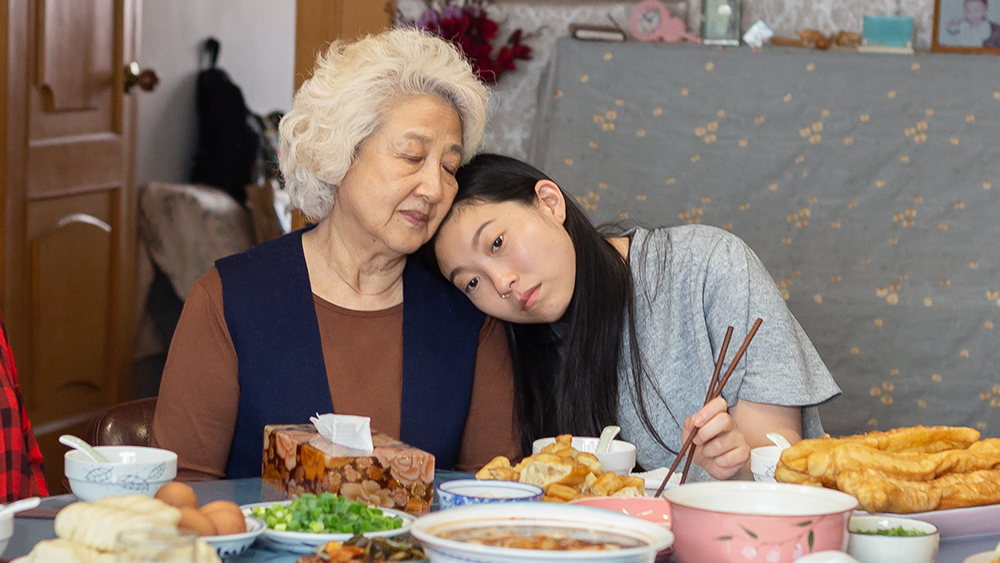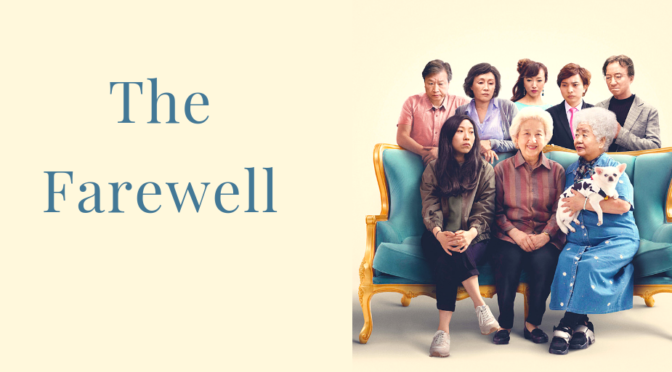A struggling artist in New York has her life disrupted when she is told that her beloved grandmother has been diagnosed with terminal cancer and only has a few months to live. Billi (Awkwafina; Crazy Rich Asians) learns, to her shock, that her parents are not going to tell her Nai Nai that she is sick. The thought of having cancer, her mother explains, is just as deadly as the disease. Lulu Wang (Posthumous) writes and directs the film based on her own personal experience.
For all her comedic roles to date, Awkwafina takes a terrific turn as a dramatic actor. Her Billi has a rebellious side, but is also compassionate and understandably confused by her family’s decision. She is most concerned for her grandmother’s welfare and her right to know the truth. Her parents advise her against visiting because she is too expressive, but it is that emotion that makes her so relatable. While the rest of the characters try to act as if nothing is wrong, it’s Billi’s empathy that the audience can identify with.
Wang is able to capture the complicated family dynamic. Nai Nai is the matriarch scolding everyone for any little detail while her sons (Billi’s dad and uncle) are deferential to her authority yet Billi’s mother holds some resentment towards Nai Nai for previous conflicts. Despite this being her own immediate family, Billi is somewhat of an outsider and Wang focuses on her attempt to navigate the social norms.

There is an emphasis on the compassion that drives this act of deception. While it may seem dishonest to lie to a loved one about their health, Wang shows the sacrifice this requires of the family. In many ways, not telling Nai Nai is a way to spare her worrying, but at their own expense. They go to great lengths to keep up the façade, even hiring someone to alter the results of her medical tests, and the emotional toll is clear. The family is choosing the bear the burden of her condition so that she may enjoy her last months and is willing to let the knowledge of her fate eat at them as a way of respecting Nai Nai. In examining this difficult, but well-meaning decision, Wang shows the lengths we are willing to go to protect those we care about.
The film effectively balances drama with humor. Billi can be sarcastic and several of her family members are hilarious in their antics like a younger cousin who refuses to be called “little” anymore. Nai Nai is the source of most of the humor. She’s at an age and social status in her family where pleasantries are unnecessary and she is completely uninhibited when it comes to give her unsolicited opinions and telling others what they are doing wrong. She affectionately calls Billi “Stupid child!”, but her constant admonishing can’t hide her good heart underneath. There is a pervasive melancholy that hangs over the film’s lighter moments. Everything is bittersweet. Moments of humor are tinged with regret as the knowledge that these may be the last laughs they share with Nai Nai is never forgotten. Wang has taken a very personal, culturally-specific issue from her life and adapted it into a feature that has heart, humor, and compassion for the family’s dilemma.

4/5 stars.
